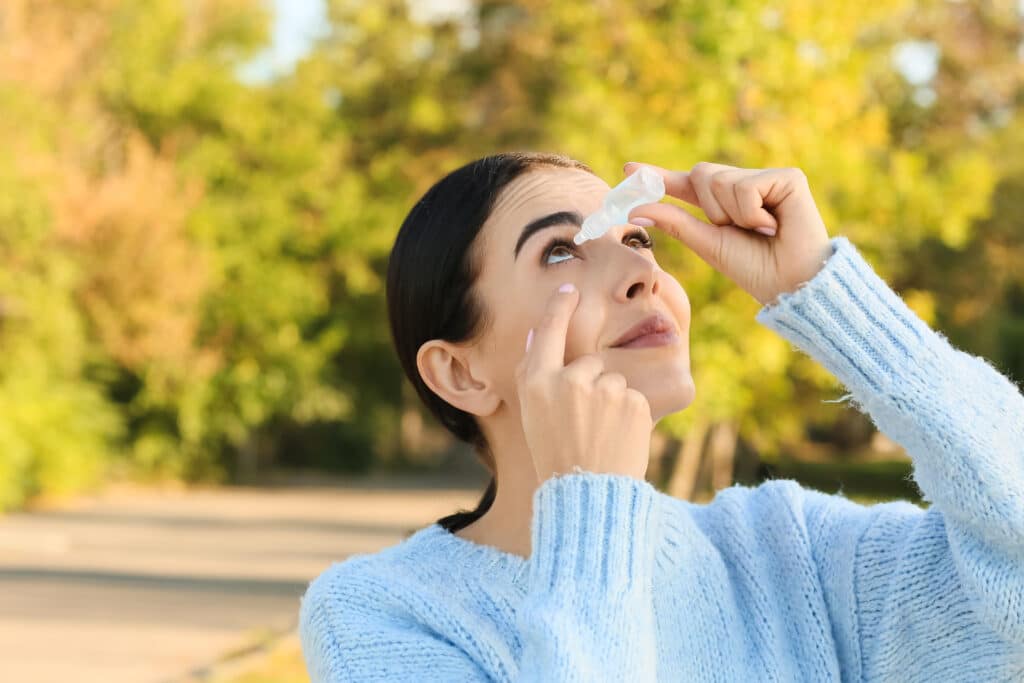Seasonal allergies cause sneezing, congestion, itchy eyes, and sinus pressure, often triggered by pollen, mold, or other environmental allergens. While immune system responses play a major role, hormones can also influence allergy severity in women. Many women notice fluctuations in their allergy symptoms during pregnancy, menopause, or other hormonal changes.
Pellecome was founded by a board-certified OB-GYN. His goal was to make bioidentical hormone replacement therapy (BHRT) more accessible for those struggling with symptoms of hormone imbalance.
With years of experience in hormone therapy, Pellecome has developed a streamlined approach that allows healthcare providers to safely incorporate BHRT into their practice, giving you more options to balance your hormones.
The Role of Hormones in Allergy Symptoms
Hormones influence immune system function, which plays a key role in our allergic reactions:
- Estrogen and Histamine: Estrogen can increase histamine production, a chemical that triggers allergic reactions. This may explain why some women experience more intense allergy symptoms at certain points in their menstrual cycle or during pregnancy.1
- Progesterone and Inflammation: Progesterone has anti-inflammatory properties that help regulate immune responses.2 Low progesterone levels may contribute to increased allergy symptoms.
- Cortisol and Immune Balance: The stress hormone cortisol helps regulate immune function. When cortisol levels are imbalanced – often due to hormone fluctuations – immune responses may become overactive and worsen allergy symptoms.3
How BHRT May Support Allergy Symptoms
Bioidentical hormone replacement therapy (BHRT) is designed to restore balance to hormone levels. For women whose allergy symptoms are linked to hormonal fluctuations, BHRT may help in several ways:
- Modulating histamine levels: By supporting estrogen and progesterone balance, BHRT may indirectly help regulate histamine responses.4
- Reducing inflammation: Balanced hormones contribute to a more stable immune response, which may help reduce allergy-related inflammation.5
- Supporting immune function: Hormones play a role in how the immune system reacts to allergens, and maintaining balance may help minimize excessive immune responses.5
While BHRT is not a direct treatment for seasonal allergies, it may support immune balance for individuals whose allergy symptoms fluctuate with hormonal changes.
Finding a Pellecome Healthcare Provider
Pellecome makes high-quality BHRT available through trained healthcare providers across the country. With a streamlined approach to bioidentical hormone therapy, Pellecome helps providers deliver natural hormone balance.
If you’re experiencing allergy symptoms related to hormonal fluctuations, you may benefit from exploring BHRT. Find a Pellecome provider near you to get started.
- Bonds RS, Midoro-Horiuti T. Estrogen effects in allergy and asthma. Curr Opin Allergy Clin Immunol [Internet]. 2013;13(1):92–9. Available from: http://dx.doi.org/10.1097/ACI.0b013e32835a6dd6
- Fedotcheva TA, Fedotcheva NI, Shimanovsky NL. Progesterone as an anti-inflammatory drug and immunomodulator: New aspects in hormonal regulation of the inflammation. Biomolecules [Internet]. 2022;12(9):1299. Available from: http://dx.doi.org/10.3390/biom12091299
- Schleimer RP. Interactions between the hypothalamic-pituitary-adrenal axis and allergic inflammation. J Allergy Clin Immunol [Internet]. 2000;106(5):S270–4. Available from: http://dx.doi.org/10.1067/mai.2000.110162
- Vasiadi M, Kempuraj D, Boucher W, Kalogeromitros D, Theoharides TC. Progesterone inhibits mast cell secretion. Int J Immunopathol Pharmacol [Internet]. 2006;19(4):787–94. Available from: http://dx.doi.org/10.1177/039463200601900408
- Vrachnis N, Zygouris D, Vrachnis D, Antonakopoulos N, Fotiou A, Panagopoulos P, et al. Effects of hormone therapy and flavonoids capable on reversal of menopausal immune senescence. Nutrients [Internet]. 2021;13(7):2363. Available from: http://dx.doi.org/10.3390/nu13072363


